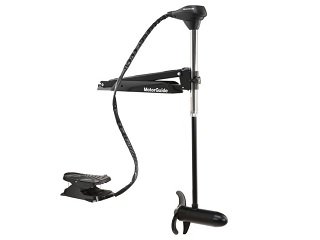 Trolling motors are an important piece of fishing equipment. In fact, there are many anglers who would probably assert that they’re invaluable, due to their quietness and ability to maneuver your boat with a tap of your foot. To keep your trolling motor performing for several years, though, you’ll need to give it some TLC now and then. Today we’ll take a look at some of the ways you can add years to your trolling motor’s life.
Trolling motors are an important piece of fishing equipment. In fact, there are many anglers who would probably assert that they’re invaluable, due to their quietness and ability to maneuver your boat with a tap of your foot. To keep your trolling motor performing for several years, though, you’ll need to give it some TLC now and then. Today we’ll take a look at some of the ways you can add years to your trolling motor’s life.
One major component of a trolling motor is its propeller. During the fishing season, it’s smart to inspect your prop every other week or so. You’ll want to look closely for any cracks, dings, or bends, as serious damage—usually from hitting underwater obstacles—will impede the motor’s performance. If you find serious damage, it’s probably best to replace the prop entirely. I’d also remove the prop itself to inspect for any tangled weeds and line around the shaft. If left unchecked, such objects may cut into the prop seal, damaging it. Often, these tangles can simply be removed by hand, but you may need a pair of needle nose pliers for trickier tangles. If you do end up removing the prop, be sure to take notice of how you did so, so you can put it back correctly. Finally, make sure that the bolt is tightened—not too tight, though—and secured when putting the prop back on.
Where electronic components are concerned, you can perform a visual inspection of all cables and wires to check for any frays, cuts, or kinks, which will require immediate action. It’s also smart to inspect the battery terminal and wire connections, too. If you find any corrosion, you can clean it up with a battery wire brush. Aside from the wires, many bow-mount motors have an affixed fish finder transducer. Inspect it for dirt or damage, and ensure its clamps are tight and secure. You can also clean it with a mild water and soap solution and a soft sponge.
Finally, the exterior of your motor should probably be fully cleaned regularly, as weeds and grime can easily build up over the course of a season on the water. To do this, use a mild water and soap solution just as you did for the transducer. Once it dries, apply a fine coating of silicon spray to the shaft and wipe it dry with a cloth. This will ensure that the unit can move freely up and down.
A trolling motor is an integral part of an angler’s setup and is designed to make time on the water easier and more efficient. As with anything electronic, though, regular inspection and maintenance will ensure that yours provides years of trouble-free use. The tips above will help you keep your trolling motor running smoothly for many seasons on the water.








